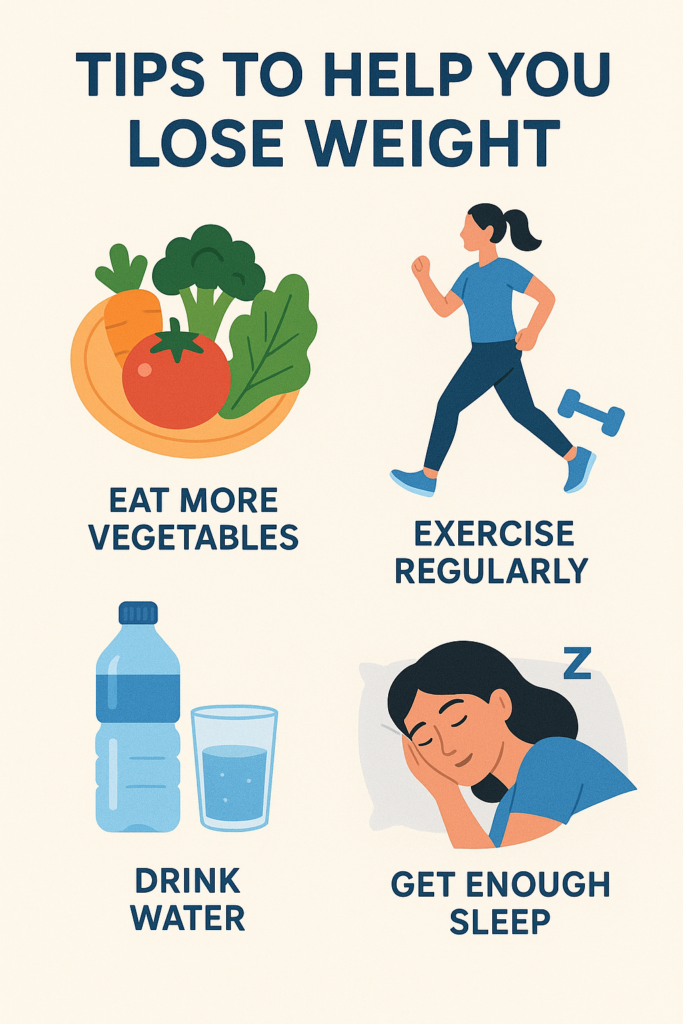1. Nutrition & Eating Habits

Eat more whole foods: Focus on vegetables, fruits, lean proteins, whole grains, and healthy fats.
Control portion sizes: Use smaller plates and avoid second servings unless you’re truly hungry.
Limit processed foods & sugar: Reduce soda, sweets, and fast food — these add calories with little nutrition.
Stay hydrated: Drink water before meals; it helps control hunger and boosts metabolism.
Mindful eating: Eat slowly, chew well, and stop when you feel satisfied — not overly full.
2. Physical Activity

Start with daily movement: Even a 30-minute brisk walk can make a difference.
Mix cardio and strength training: Cardio burns calories, while strength training builds muscle (which boosts metabolism).
Stay consistent: Aim for at least 150 minutes of moderate activity per week.
Increase daily activity: Use stairs, walk instead of driving short distances, or do quick workouts at home.
3. Lifestyle Habits
Get enough sleep: Lack of sleep increases hunger hormones and cravings. Aim for 7–9 hours.
Manage stress: Stress can lead to emotional eating; try relaxation methods like deep breathing, yoga, or meditation.
Plan meals ahead: This reduces impulsive eating and helps you make healthier choices.
Track progress: Use a food journal or app to monitor your meals, exercise, and weight changes.
4. Mindset & Motivation

Set realistic goals: Aim to lose 0.5–1 kg (1–2 lbs) per week.
Celebrate small wins: Progress is progress — even minor improvements matter.
Stay patient: Weight loss is a gradual process, consistency is more important than quick results.















Leave a Reply